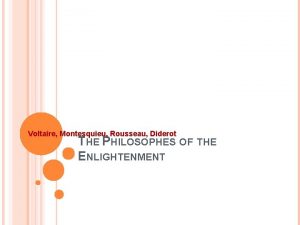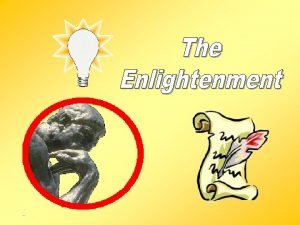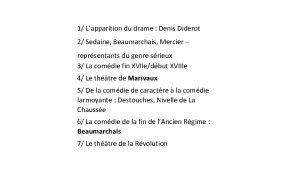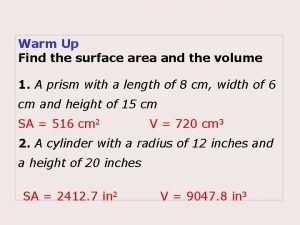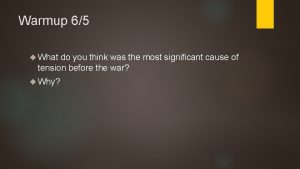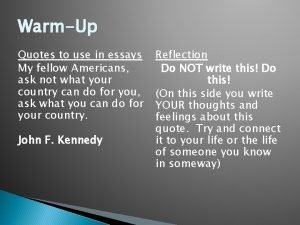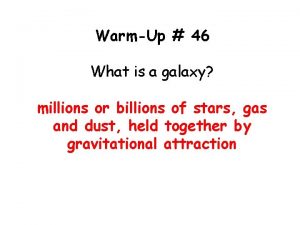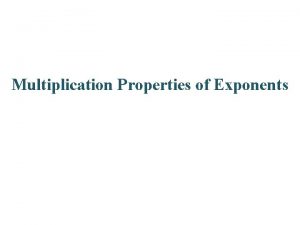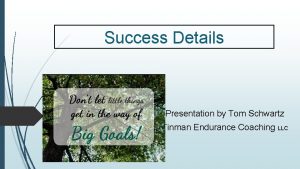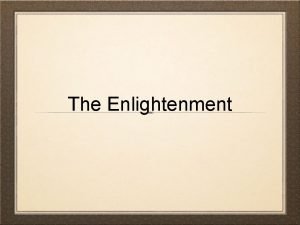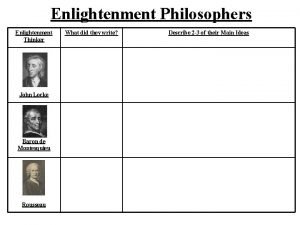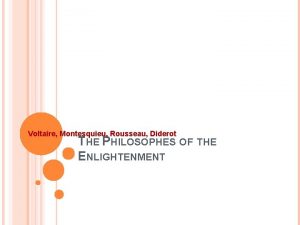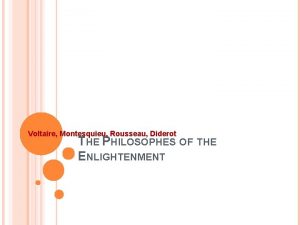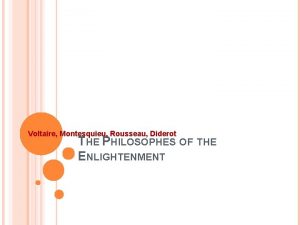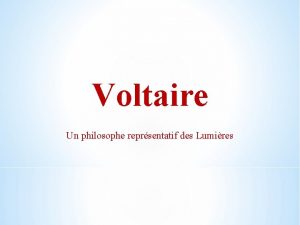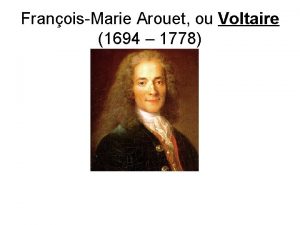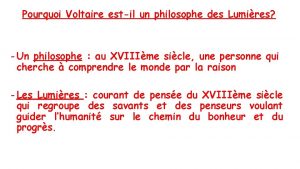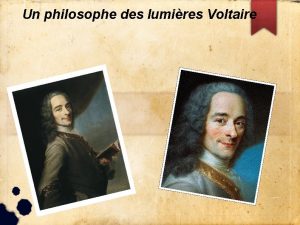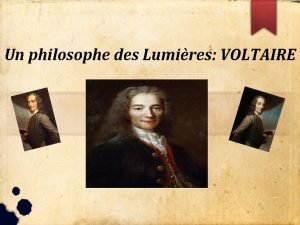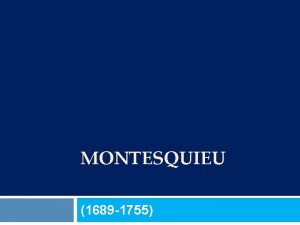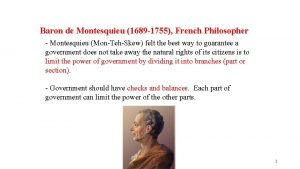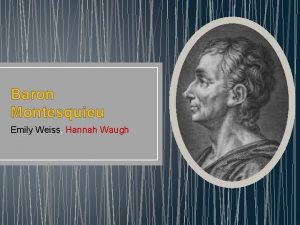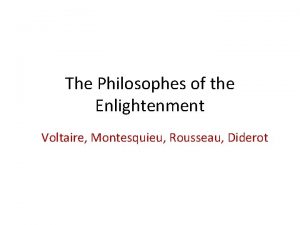WarmUp Philosophe Salon Montesquieu Voltaire Denis Diderot JeanJacques


















- Slides: 18

■ Warm-Up: ■ Philosophe ■ Salon ■ Montesquieu ■ Voltaire ■ Denis Diderot ■ Jean-Jacques Rousseau

That change was the Enlightenment! What is the Enlightenment attitude? (1) A desire for rationality, logic, consistency. (2) A rejection of emotionalism (3) A preference for evidence, not faith (4) Increased interest in science, mathematics, geometry (5) An admiration for Greece and Rome and an abhorrence for everything medieval. (6) A preference for the artificial over the natural, technology over wilderness.

From 1650 to 1800, European philosophers began rethinking old ideas about gov’t, religion, economics which led to an era known as the Enlightenment (also called the Age of Reason)

The intellectuals of the Enlightenment were called The Enlightenment philosophes & they shared some basic beliefs New truths could be Everything could be explained discovered by using by observing universal truths logic & reason known as natural laws A belief in progress, that People are born the world can be improved, with natural rights & that life should be enjoyed (personal freedoms that protect liberty)

Why did the Enlightenment begin? During the Renaissance, people began to question medieval ideas, emphasize individual potential (humanism), & encourage education During the Age of Exploration, the discovery of new lands & trade routes led Europeans to search for other “new” things During the Protestant Reformation, people began to question church teachings, freely explore new ideas, & tolerate other religions During the Age of Absolute Monarchs, powerful kings spent lavishly, fought expensive wars, & ruled without regard to their nation’s people

During the Scientific Revolution, scholarsaapplied …This gave Enlightenment philosophes model logic, perfected thenew scientific method, made to follow to make theories about&society new discoveries that shattered old ideas… The most important Enlightenment ideas were those that challenged rule by absolute monarchs & presented new theories about government

Political Ideas of the Enlightenment Thomas Hobbes Bothered by the English Civil War & chaos that plagued England after the beheading of King Charles I Believed that humans are naturally cruel, selfish, & hungry for power; People need to be protected from themselves

Political Ideas of the Enlightenment Hobbes supported rule by absolute monarchs; He used scientific reasoning to argue that only kings with absolute power could maintain order in society Hobbes believed in an idea called the social contract: people give up power & rights to a king who provides law & order

Political Ideas of the Enlightenment English philosophe John Locke disagreed with the ideas of Thomas Hobbes Was influenced by the Glorious Revolution when the Bill of Rights was created to protect citizens’ rights Believed that people are born with natural rights, including life, liberty, property; Locke argued that kings could be overthrown if they violated peoples’ rights

Political Ideas of the Enlightenment Locke supported limited or constitutional monarchies Believed that govt power came from the consent of the governed (approval of the people) & that kings should protect the rights of the people The English Bill of Rights (1689) • The king cannot tax or overturn Parliament’s laws • Protected freedom of speech • The army cannot be used as a police force • No excessive bail

Hobbes vs Locke Hobbes ■ People are naturally selfish & act out of self-interest ■ Without gov’t control, society would be chaotic ■ People are like children & need a strong “father” to keep them in line Locke ■ People are reasonable & able to make decisions ■ Freedom & liberty are more important than order & safety ■ People should be able to overthrow kings who abuse their power

Political Ideas of the Enlightenment French philosophe Voltaire was one of the most famous writers of the Enlightenment Argued for the rights of freedom of speech & religion; He criticized intolerance, prejudice, & oppression Jailed twice in France for criticizing the gov’t but his letters to European monarchs helped introduce new reforms & freedoms

Voltaire once said: “I may disapprove of what you say, but I will defend to the death your right to say it. ” When, if ever, should freedom of speech be restricted?

Political Ideas of the Enlightenment Baron de Montesquieu agreed with John Locke that government should protect individual liberties & that too much power led to tyranny Montesquieu believed in separation of powers: divide power among 3 branches of government

Montesquieu’s model of govt also included a system of checks & balances in which each branch of gov’t could limit the power of the other branches

Political Ideas of the Enlightenment The Swiss philosophe Jean-Jacques Rousseau believed in individual freedom Believed that people are naturally good, but power corrupts them; Free people form a social contract & gov’t based on the common good Argued for a direct democracy that is guided by the general will of the majority of citizens

Montesquieu vs Rousseau Montesquieu Rousseau ■ Take power from ■ Let the people make one king & divide all decisions directly it among 3 branches to ensure what the of gov’t that each can majority wants, the limit other branches majority gets

Political Ideas of the Enlightenment Italian philosopher Cesare Beccaria criticized abuses in the justice system Upset with the use of torture, corrupt judges, secret trials, & severe punishments for crimes Argued that people accused of crimes should be given a fair & speedy trial and that capital punishment & torture should be abolished
 Voltaire montesquieu rousseau
Voltaire montesquieu rousseau Denis diderot beliefs
Denis diderot beliefs Denis diderot biographie
Denis diderot biographie Voltaire contributions
Voltaire contributions Java warmup
Java warmup Warmup ratio
Warmup ratio Pyramid warmup
Pyramid warmup 65 mins
65 mins Define:warmup
Define:warmup Warmup 65
Warmup 65 Monorhyme
Monorhyme Warmup end
Warmup end Persuasive essay quotes
Persuasive essay quotes Gmass warmup
Gmass warmup Multiplying with exponents
Multiplying with exponents Tinman endurance coaching
Tinman endurance coaching Status vs class
Status vs class Hume's bundle theory
Hume's bundle theory John locke enlightenment ideas
John locke enlightenment ideas
